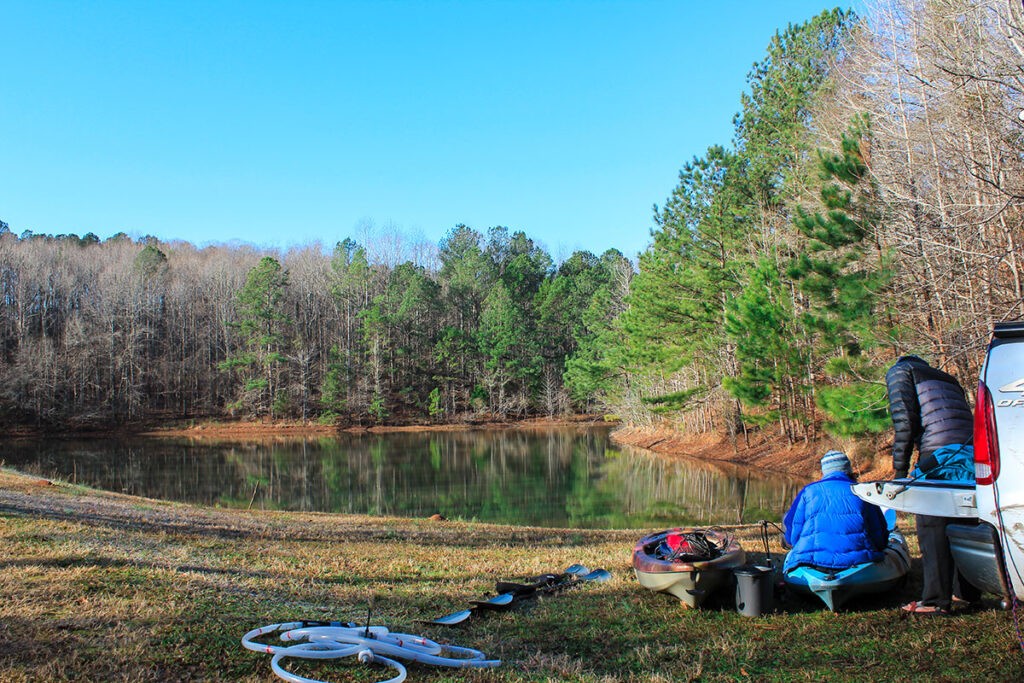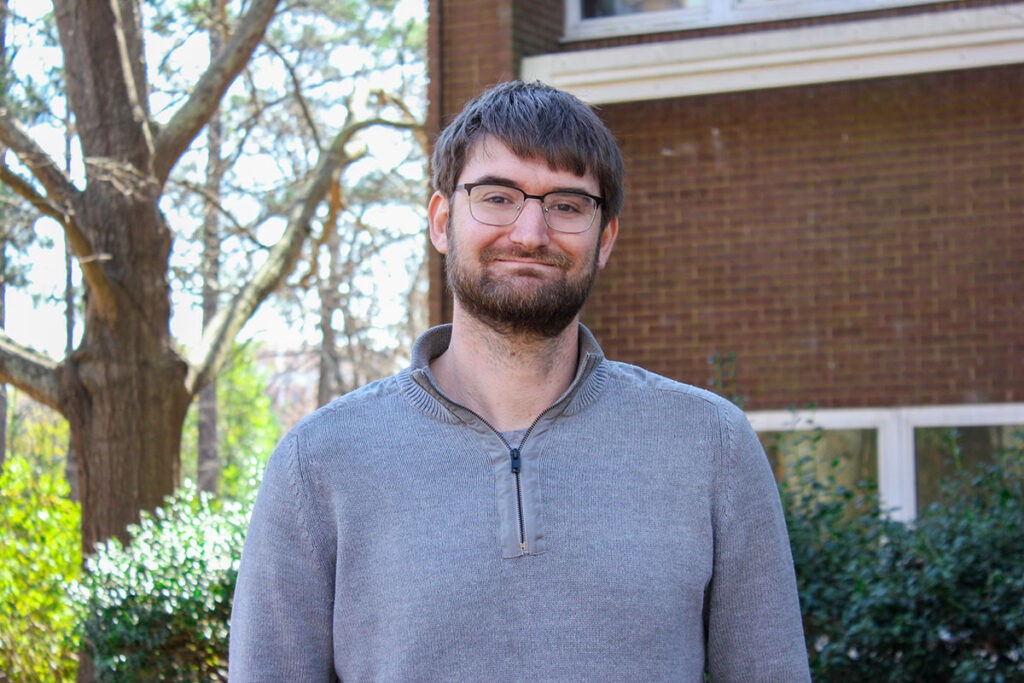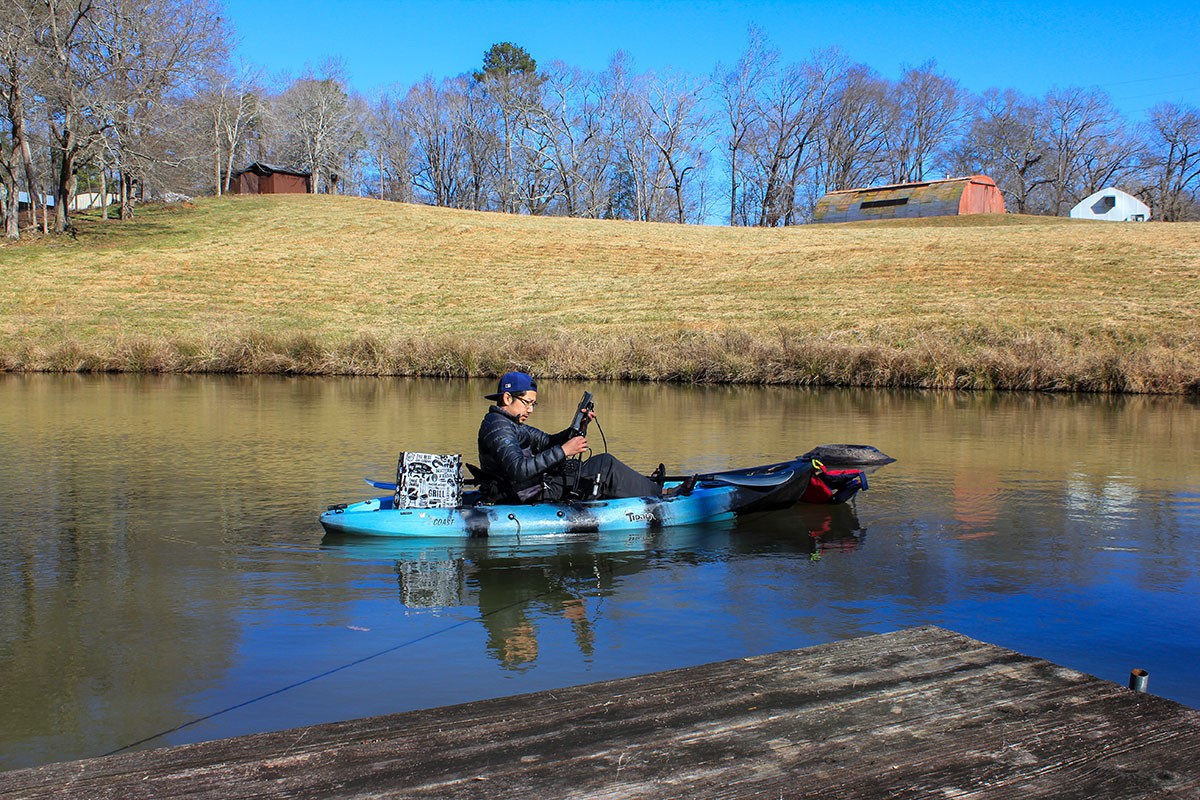The presence of a little-known group of parasites in zooplankton populations in the ponds of Whitehall Forest immediately drew the attention of River Basin Center affiliate Alex Strauss, an assistant professor in the Odum School of Ecology, when he arrived at the University of Georgia.
“I was pleasantly surprised that right away I started seeing some patterns that were really interesting,” said Strauss, who specializes in community and disease ecology. “From the beginning, it was clear that there were these host-parasite communities I was interested in studying.”
But before too long it got even more interesting. Strauss and his research team originally focused their field surveys on understanding relationships between zooplankton biodiversity and outbreaks of their parasites. They had been sampling the ponds in Whitehall Forest for just a couple of months when they noticed the occurrence of harmful algal blooms, wiping out communities of hosts and parasites alike.
Strauss says he aims for his research to be “grounded in nature and patterns” he sees in the field, so when he and his colleagues noticed severe algal blooms in a portion of the sampled ponds, he saw an opportunity to expand their investigation. In addition to collecting water quality data, they began to survey different size classes of algae to better understand relationships between zooplankton grazing and the timing and severity of the toxic blooms.
They found that the ponds most severely impacted by blooms were located downhill of a whitetail deer enclosure, suggesting that the recurrent algal blooms are likely triggered by excess nutrients washed into the ponds by rainfall. Before the blooms, these same ponds had some of the highest densities of zooplankton, and some of the largest outbreaks of disease. However, the algal blooms resulted in the elimination of entire zooplankton populations, as well as their parasites.
“The patterns I’m seeing here seem to indicate that these algal blooms are a really important component of understanding the host-parasite interactions here. They happen periodically, so we need to understand what that means in the context of disease transmission in this system,” Strauss said.

The algal blooms play a role in the disease ecology of the zooplankton’s parasites, but Strauss and his team are also eager to further understand how grazing of algae by zooplankton hosts affects the severity, timing, and duration of the blooms. While there has been substantial existing research regarding these questions in northern ecosystems, there is still much to discover about these relationships in the Southeast, with its different species, climatic conditions, and potential management strategies.
Lab manager Kate Galbraith believes this project “has implications for helping to solve a piece of the diversity-climate change question.”
Strauss is part of an interdisciplinary group of researchers who recently received funding through the UGA Presidential Interdisciplinary Seed Grant Initiative to address such questions. The project, “Bloom and Doom: Is Increasing Risk of Harmful Algal Blooms an Inevitable Consequence of Global Change? Assessing Risk and Exploring Strategies in Georgia from Biological and Social Perspectives,” is led by Cory Struthers of the School of Public and International Affairs, with Strauss, Peter Hazelton (Warnell School of Forestry and Natural Resources), Michelle Ritchie (College of Public Health), and Krista Capps (Odum School).

Strauss hopes to eventually expand his field surveys to involve lab experiments to investigate resistance to parasites in different zooplankton species, and to understand impacts of zooplankton grazing on the abundance and types of algae. He is currently recruiting both graduate and undergraduate students for this project.
“We’re always looking for more students who’d be excited about doing projects related to community ecology, disease ecology, or both,” Strauss said.

